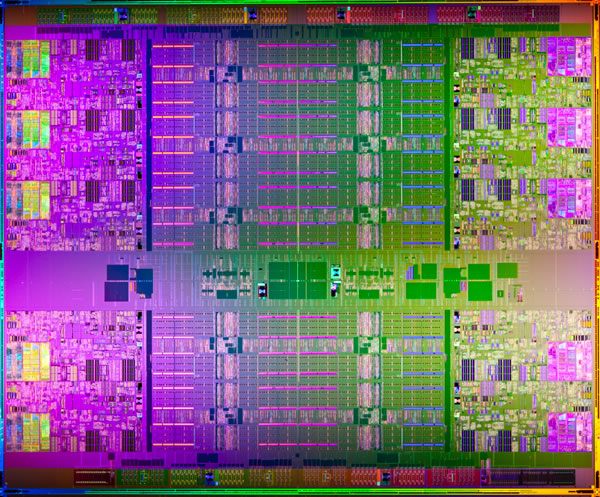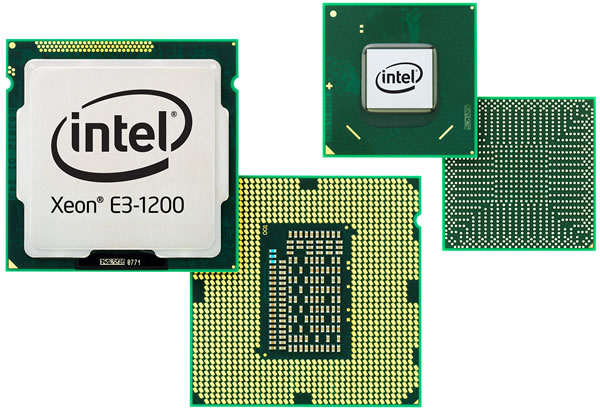Intel has introduced 29 new server processors to its E3 and E7 Xeon families today. The former serves entry-level customers while the latter represents Intel's most powerful server offering, supposedly setting 14 benchmark records and surpassing its Itanium chips.
Based on Intel's 32nm Westmere-EX architecture, Intel claims the E7 series offers a 40% performance improvement over last year's Westmere-EP-based Xeon chips. That makes sense when you consider the Westmere-EP models came with a maximum of six cores.

The E7 range alone is comprised of 18 products, allowing Intel to meet a wide variety of demands. More than half feature a 10-core, 12-thread, 130W design while the others scale down to eight and six cores with a 105W TDP. One six-core model lowers the TPD to 95W.
The flagship Xeon E7-8870 is priced at $4,616 (in quantities of 1,000) and is outfitted with no less than 10 processing cores, can handle up to 20 threads, operates at 2.4GHz, supports Turbo Boost and HyperThreading, carries 30MB of cache and has a 130W TDP.
The new E3 line is equally diverse. All 11 chips have four cores with support for TurboBoost and HyperThreading. Most operate higher than 3GHz with the top unit peaking at 3.5GHz and TDPs range from 20W to 95W. View a full list of chips and prices here (PDF).

All of the processors come with a couple of new security features. Intel's Advanced Encryption Standard New Instruction (AES-NI) allows systems to quickly encrypt and decrypt data, while Intel's Trusted Execution Technology (TXT) protects applications from malware.
The Xeon E3 and E7 are already shipping via 19 system builders including Bull, Cisco, Cray, Dell, Fujitsu, Hitachi, HP, IBM, Lenovo, NEC and Oracle. Configurations range from dual-socket servers to "mission-critical" supercomputers powered by as many as 256 chips.